September 18, 2023: IHS Updates for Tribes and Tribal and Urban Indian Organizations
This bi-weekly update provides up to date information on Indian Health Service and other federally-hosted meetings, conferences, deadlines and recognition from across the Indian health system. For more information or questions, email IHSPublicAffairsStaff@ihs.gov.
Historic Visit to South Dakota
Last week marked a significant milestone as HHS leaders and IHS Director Roselyn Tso had the honor of meeting with tribal leaders from the Secretary's Tribal Advisory Committee and Direct Service Tribes Advisory Committee in Rapid City, South Dakota. This gathering was the first of its kind, bringing together the DSTAC and the STAC, highlighting the critical importance of collaboration and unity when it comes to health care delivery across Indian Country.
Throughout the week, Ms. Tso joined Secretary Xavier Becerra, Deputy Secretary Andrea Palm, Assistant Secretary for Health Adm. Rachel Levine, key leaders from HHS operation divisions, and tribal leaders for site visits in the Great Plains Area. These visits took the group to some of the most critical health care facilities and programs in the region, providing a firsthand look at the state of health care for American Indians and Alaska Natives. The delegation had the privilege of visiting the Oyate Health Center in Rapid City, various programs operated by the Oglala Sioux Tribe on the Pine Ridge Reservation, and the Pine Ridge Hospital, the largest health care facility in the Great Plains Area.
Director Tso values these opportunities to hear from tribal leaders and to discuss the health and resource needs of American Indians and Alaska Natives. The leaders, staff, and people she visited with provided great awareness of the opportunities and challenges that face many of our communities. Seeing these challenges in-person spotlights the need for continuing support of tribal issues throughout Indian Country. The IHS thanks our colleagues at HHS for their continued support in prioritizing health programs and services for our communities.
As we look to the future, let this gathering serve as a testament to the power of partnership and the dedication to improving health care for all, regardless of where we call home. The journey continues, and with it, the hope of a healthier, stronger Indian Country.
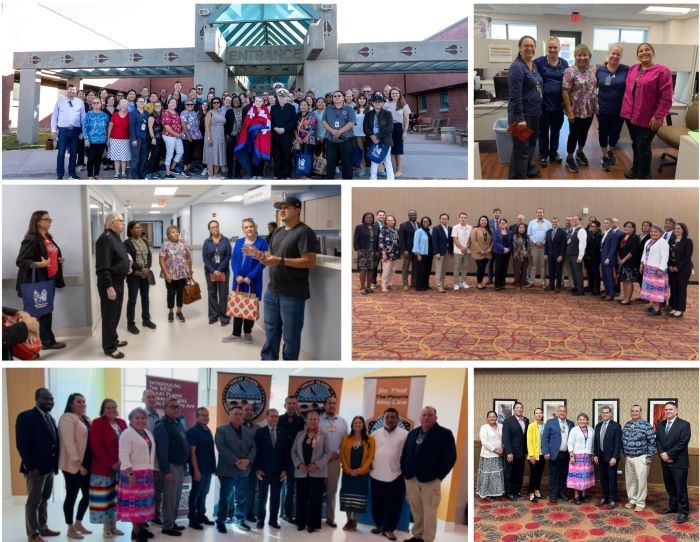
Allocation Decisions for $702.6 Million from the Bipartisan Infrastructure Law
In a significant stride towards ensuring essential sanitation facilities throughout Indian Country, the IHS recently announced the allocation decisions for $702.6 million in funding from the Bipartisan Infrastructure Law. Building upon the momentum set by the BIL, which allocates $3.5 billion to the IHS between FY 2022 and 2026, this funding empowers efforts to develop critical infrastructure, including robust drinking water sources, reliable sewage systems, and effective solid waste disposal facilities. The IHS will continue to leverage the use of multiple strategies and available authorities to ensure timely and efficient distribution of this historic funding.
These allocations align with recommendations from tribal leaders, prioritizing projects that have progressed through planning phases and can seamlessly transition into the design and construction stages. The commitment to securing adequate funding for planning and design activities remains paramount. The outcome of this funding is substantial – more than 36,000 American Indian and Alaska Native households will benefit by gaining access to essential services.
Approval of Updated COVID-19 Vaccines
Last week, the Food and Drug Administration approved and authorized, and the Centers for Disease Control and Prevention recommended, the updated Pfizer-BioNTech and Moderna mRNA COVID-19 vaccines, formulated to more closely target currently circulating variants and to provide better protection against serious consequences of COVID-19. Everyone 6 months and older, regardless of current vaccination status, should get an updated mRNA COVID-19 vaccine to protect against COVID-19 illness this fall and winter. More information will be coming soon as we prepare for vaccine distribution across the Indian health system.
IT Modernization Seeking Site Partners for new EHR Solution
One of the central principles of the IHS Health IT Modernization effort is to build and operate the new EHR solution with our partners. As the IHS approaches finalization of a contract award for the new solution, it is important to understand which sites may want to participate with the IHS on the shared enterprise solution planning efforts. To that end, the IHS recently posted a Dear Tribal Leader and Urban Indian Organization Leader letter, along with a Statement of Interest. This non-binding document will help the IHS understand which sites may be interested in becoming part of the IHS enterprise EHR solution. The Statement of Interest opens the door to direct communication with interested partners in support of planning for the modernized EHR solution. Please share the Dear Tribal Leader and Urban Indian Organization Leader letter on this key collaborative initiative with appropriate organizations in your network.
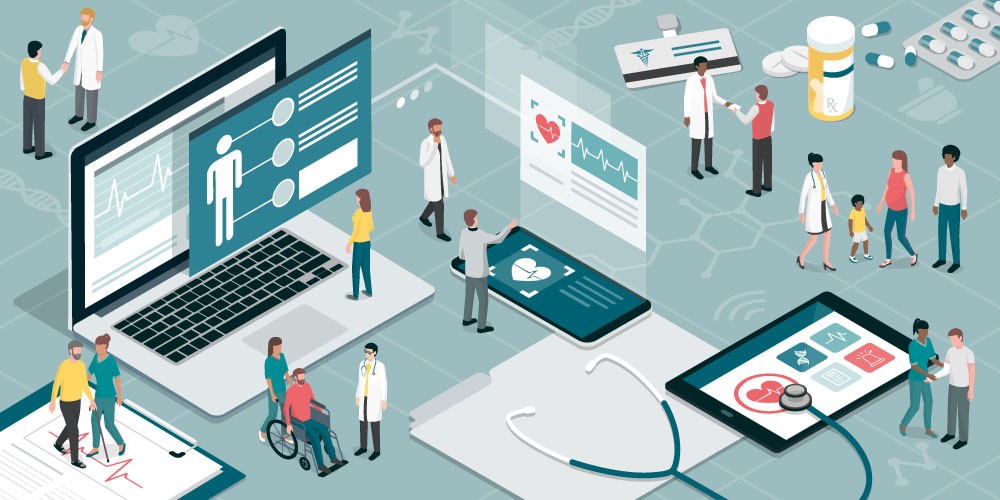
The August tribal consultation and urban confer session on the Health IT Modernization Program focused on governance, exemplifying the proactive stance to modernize health care systems to elevate services for both tribal and urban Indian populations. Deputy Chief Information Officer Andrea Scott explained the participation opportunities for tribal and urban Indian organizations through focus groups to ensure the entirety of tribal and urban Indian organization perspectives are represented on shared issues around the use of technology, regardless of which EHR they are using. Through the establishment of focus groups, subject-matter experts in the areas of interoperability, implementation, and data analytics will bring their knowledge to assist in modernization. Interested individuals can email Modernization@ihs.gov to join a focus group(s). All parties are encouraged to be a part of the conversation as we rely on the partnership of tribal and urban Indian organizations to make this program successful.
New IHM Chapter
The Indian Health Service has published a new chapter in the Indian Health Manual – IHM Chapter 3-33, Infection Control and Prevention, marking an important step in the standardization of an agency-wide Infection Control and Prevention Program. This chapter establishes the program policies, procedures, and responsibilities required for ensuring a comprehensive program exists in all IHS health care facilities and service units. An ICP program is required to meet and maintain readiness with applicable health care accreditation standards. This chapter applies to IHS health care facilities, including hospitals and ambulatory care, and employees. Tribally-operated health care facilities may also adopt this policy.
Recruiting Health Care Professionals for Indian Country
Last week, IHS Director Roselyn Tso had the opportunity to attend the Association of American Indian Physicians Annual Meeting in San Diego, California, where she presented on recruitment and retention of physicians at the IHS. Ms. Tso also met with IHS-sponsored scholars who are currently attending pre-med schools, medical schools, and residency programs throughout the nation, as well as members of the IHS recruitment and outreach team representing the Portland, Billings, and Oklahoma City Areas. The need for health care professionals across Indian Country is immense, and it's a challenge that must be addressed head-on. Together, we can work towards ensuring that our communities have access to the quality health care they deserve.
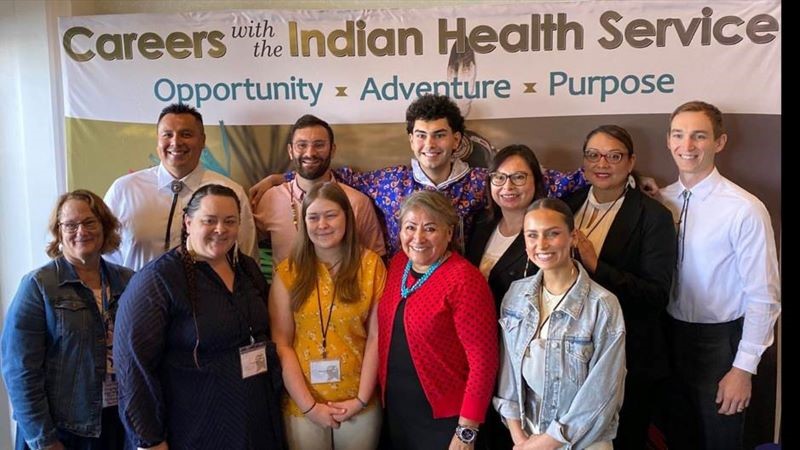
Catastrophic Health Emergency Fund Notice of Proposed Rulemaking
The IHS published the Catastrophic Health Emergency Fund Notice of Proposed Rulemaking on July 18. The CHEF was established to meet the extraordinary medical costs associated with the treatment of victims of disasters or catastrophic illnesses who are within the responsibility of the Service and to reimburse federal and tribal Purchased/Referred Care programs for costs that exceed the cost threshold. The NPRM proposes regulations governing CHEF and includes a 60-day comment period that closes on September 18. Key changes incorporated in the proposed rule are: a reduction in the threshold from $25,000 to $19,000, with an annual adjustment matching the Consumer Price Index for all urban consumers update; the implementation of an appeal process for CHEF cases that are denied reimbursement; and the removal of Tribal Self Insurance as an alternate resource for the purposes of the CHEF program. IHS encourages all comments and will take them into consideration when the CHEF Final Rule is published.
Recognizing Suicide Prevention Awareness Week and Month
September is National Suicide Prevention Month, and last week was Suicide Prevention Awareness Week. The aim of theses observances is to raise awareness of suicide prevention efforts, share information, promote resources, encourage collaboration, and foster partnerships to address suicide in Indian Country. Every death by suicide is a tragedy. By working together, we can make a difference and reduce suicide. The lives we save are those of our relatives. Read more in the IHS Blog.
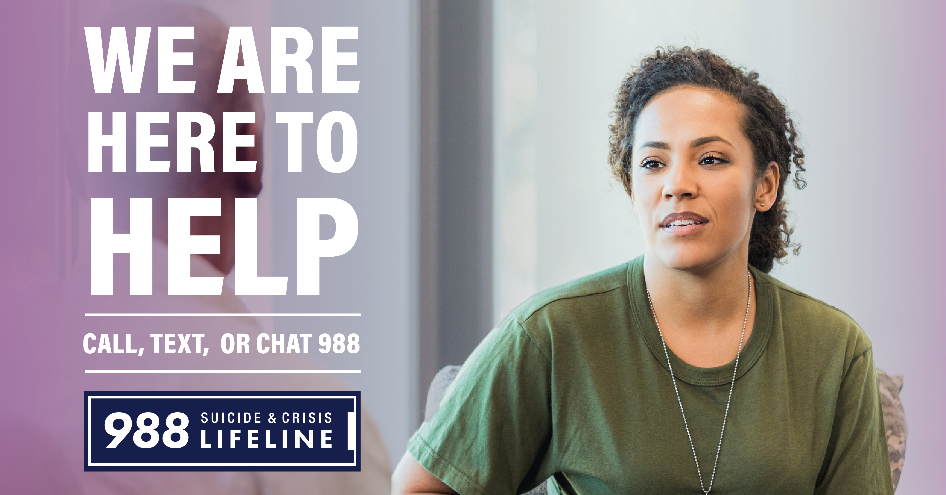
Applications Now Open for Small Ambulatory Program
The IHS Division of Facilities Planning and Construction within the Office of Environmental Health and Engineering is still accepting applications for the Fiscal Year 2022 and 2023 Small Ambulatory Program. The FY 2022 and FY 2023 budgets both include $25 million for a total budget of $50 million. Projects awarded under these budgets will be granted up to $3.5 million, and all 12 IHS Areas submitting applications will have an opportunity to receive an award. The SAP supports American Indian and Alaska Native tribes or tribal organizations operating an Indian health care facility. These funds can be used for the construction, expansion, or modernization of small ambulatory health care facilities. The deadline for submitting FY 2022 and FY 2023 SAP applications is November 10.
National Health Service Corps S2S Loan Repayment Program
The 2024 National Health Service Corps Students to Service Loan Repayment Program application cycle is open. Medical, dental, nursing and physician assistant students in their final year of school can receive awards up to $120,000 in exchange for a three-year commitment providing primary care services at NHSC-approved sites in high-need rural and other provider shortage areas. This year, an additional $40,000 was added to supplement medical students who commit to providing OB/GYN services in a maternity care target area. Learn more and apply by December 7 at 7:30 p.m. ET.

Native American Health Center – Oakland CEO to Retire November 1
Martin “Marty” Waukazoo (Lakota), chief executive officer of the Native American Health Center – Oakland is retiring on November 1, after 40 years of service. Acting CEO and Chief Administrative Officer Natalie Aguilera (Choctaw) will take the leadership helm for the urban Indian organization. Under Waukazoo’ s leadership, the NAHC has grown significantly since its inception to its current status of more than 300 staff across 12 locations and a budget of more than $35 million serving American Indian and Alaska Natives in the Bay Area, California, eventually becoming a trusted community partner. A tremendous thank you to Mr. Waukazoo for your unwavering dedication to serving our urban Indian populations. Congratulations on your retirement!
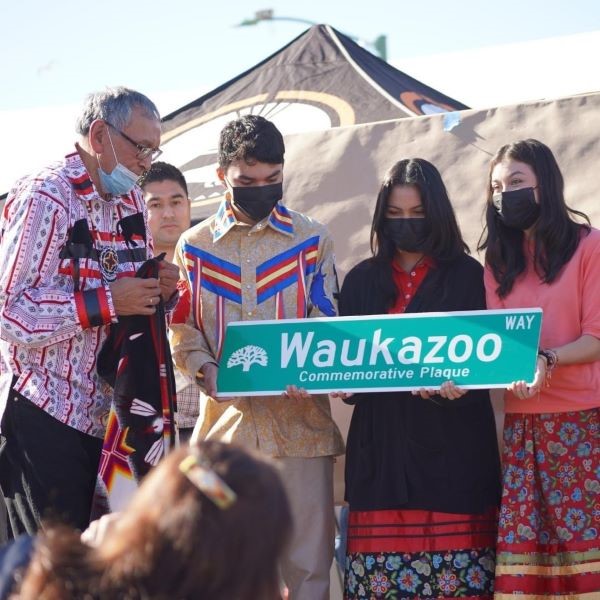
Save the Date
- September 21: DSTAC Monthly meeting
- October 26: CHAP Tribal Advisory Group (TAG) Meeting
IHS Blogs
- Recap of August Tribal Consultation and Urban Confer on the Modernization Program
- Crisis Services in Indian Country
- IHS Supports Patients in Pain Management
Subscribe to the IHS blog by providing your name and email address in the “Stay Connected” box.
Social Media
Follow IHS on Twitter , Facebook and LinkedIn to see more of what the IHS is doing in your community and around the country. You can also follow the IHS Director on Facebook and Twitter .



